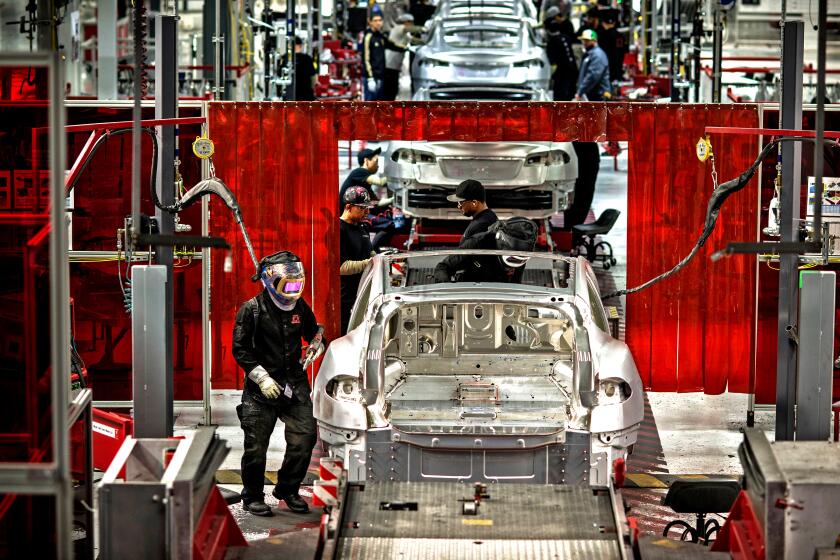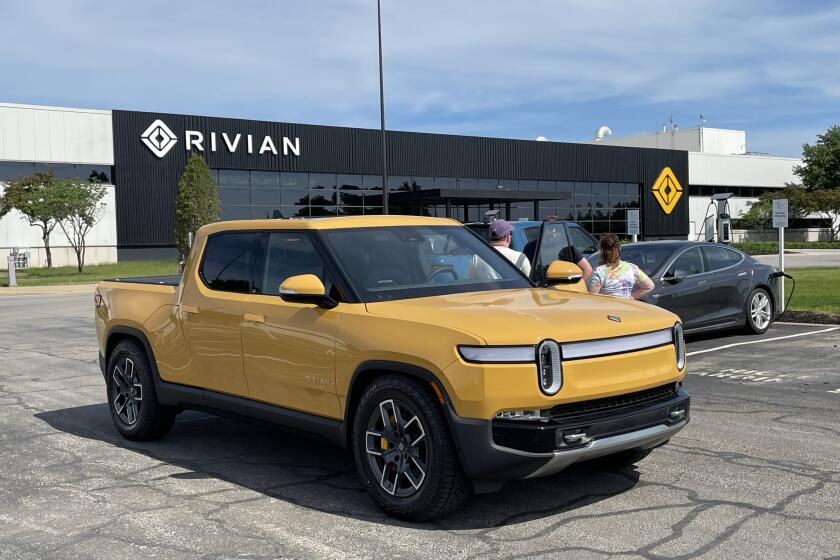Czech Car Maker Looks West for Partner in Overhaul : Modernization: State-run Skoda facilities are plagued by decades of neglect, but democratic reforms have spurred efforts to lure Western auto companies to invest.
Over eight decades of car building in this dreary industrial town northeast of Prague could soon undergo dramatic change as Skoda seeks a Western partner to boost modernization efforts and transform the state-run concern into a publicly owned company.
Such an alliance has been under discussion with numerous Japanese and European car makers, as well as General Motors Europe, since democratic reforms last November began the process of liberating Czechoslovakia from 42 years of Communist rule.
Skoda’s sprawling but aging complex about 35 miles from Prague is considered by many Western car makers to be a jewel in the rough, despite the lack of any substantial economic reforms.
“On one hand, we have world-class design and assembly here,” said Jiri Danhelka, press secretary for the auto maker, adding that just last year Skoda scrapped its decades-old rear engine design and began producing its first front-drive sedan, the Favorit.
Next year, Skoda also plans to introduce a larger, front-drive sedan and wagon called the Forman. It also is under pressure to develop a new engine to meet stricter emission standards in 1992 if it is to continue exports to about 30 countries, one of the largest outside markets being Great Britain.
“But the government has not provided enough money for needed improvements,” Denhelka said, noting that this is the main reason for a joint venture, which could eventually double Skoda’s output and help satisfy pent-up demand for cars in both Czechoslovakia and Eastern Europe.
“Some auto makers see us as the best auto plant in Eastern Europe, so we can choose our partner,” Danhelka said, adding that Skoda will most probably announce an alliance later this year. “We are not at the mercy of anybody.”
Suitors include BMW and Volkswagen, Fiat, Renault and PSA, Subaru and Mitsubishi. GM of Europe is also talking with Skoda, although it is unlikely that the two will reach any agreement, sources said.
There are conditions attached to any such alliance, however.
“We want to maintain final production in Mlada Boleslav and preserve the Skoda name,” Danhelka said. “Another condition is the creation of social conditions as they exist in major Western countries,” although he said the Czech government is likely to retain an interest in the company.
Skoda also “wants to preserve jobs for Czechs,” Denhelka said. But the company appears unconcerned about the fate of 2,000 Vietnamese and Cuban workers employed at Skoda as partial loan repayments from those countries.
Suitors also may be interested in Skoda’s skilled work force, taking advantage of lower labor rates here when compared with other Western countries, he conceded.
Danhelka insists that Skoda “is a modern plant and not a museum,” as evidenced by more than 100 West German robotic welders and a modern, final-assembly area that puts to rest notions that Czechoslovakia, once a forerunner in industrial excellence, is firmly in the Stone Age when it comes to making cars.
But a recent tour of the Skoda works revealed years of economic neglect, as well as the last vestiges of Communist rule. Any Western auto maker is likely to start anew instead of modernizing Skoda’s hodgepodge of facilities, many of which were last renovated during the 1960s.
Many facilities are in dire need of structural repairs. Some still have meshed fences that once enclosed prisoner auto workers. The paint shop is over 30 years old, and there are virtually no safety or environmental controls in place.
Workers may be justified in fearing that added automation under such a partnership could jeopardize their livelihoods, even if production is doubled. Industry analysts say Skoda’s current work force of 16,500 at Mlada Boleslav is about three times the level needed to produce the current rate of 190,000 cars a year.
The parting of the Iron Curtain, as well as the elimination of European trade barriers in 1992, will undoubtedly mean changes for Skoda. It has enjoyed an 85% share of the Czech market, in which there is a four-month wait for its cars.
“It will certainly create new competition,” Denhelka said. “Skoda had a virtual monopoly on the home market and that should not have been. . . . We must realize that quality and growth comes only from competition.”



